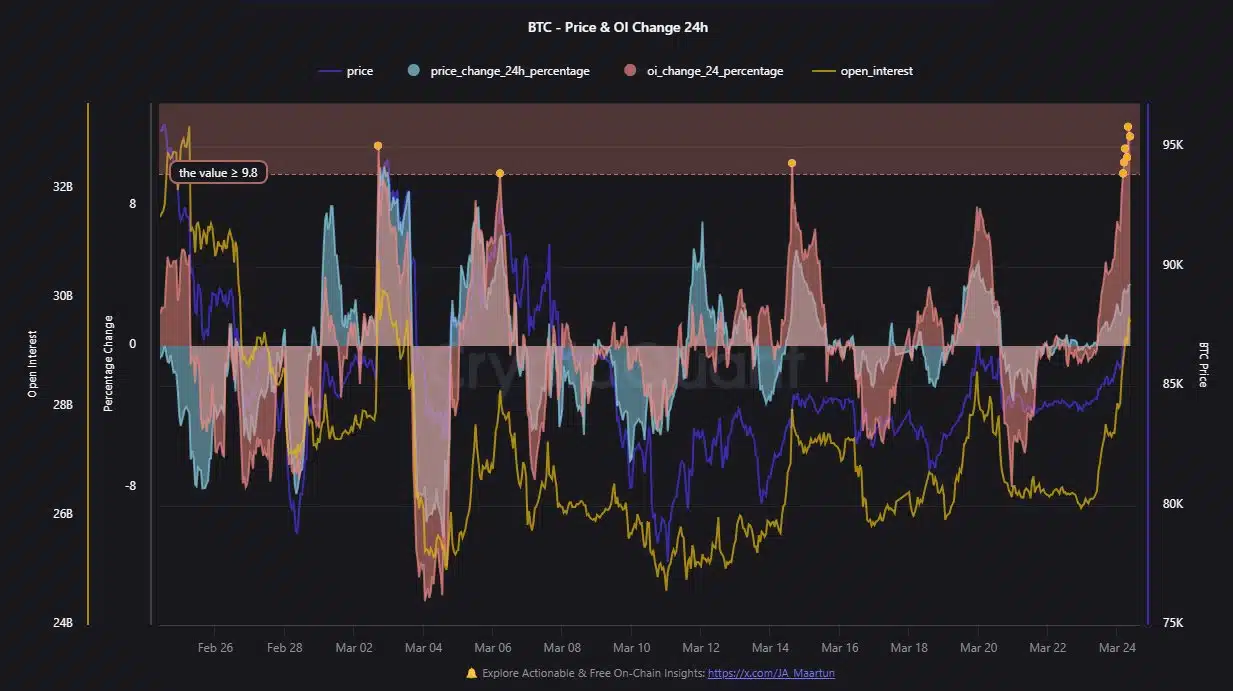Bitcoin’s value surged towards $95K, however the 24-hour chart reveals heightened volatility, with OI reaching record levels above $32 billion.
Within the final 24 hours, Bitcoin noticed a big value improve, accompanied by notable inflows of leveraged positions. OI trended upward alongside value, suggesting merchants are betting on additional good points.
Nevertheless, OI spikes exceeding 9.8% have traditionally been a precursor to sharp corrections. If value momentum falters, overleveraged positions may unwind, inflicting speedy sell-offs.
Bitcoin leverage: Breakout or breakdown?
As OI crosses $32 billion, the rising leverage fuels Bitcoin’s rally. Nevertheless, this inflow of capital creates a fragile setup the place even minor pullbacks may set off liquidations.
A speedy value improve mixed with extreme leverage heightens the danger of cascading liquidations, creating the potential for amplified value swings.
If bullish momentum persists, Bitcoin may enter a parabolic part, pushing costs past present highs. Alternatively, if the value drops out of the blue, it may spark a wave of liquidations, resulting in a pointy correction.
Monitoring shifts in OI and funding charges will likely be key to assessing market sentiment and figuring out potential development reversals.
FOMO could also be driving Bitcoin larger, however at what value?
Bitcoin’s ascent towards $87.5K has ignited a wave of FOMO, with merchants speeding in to capitalize on the momentum. This heightened hypothesis has additional elevated OI, signaling rising leverage available in the market.
Whereas this emotional shopping for spree may push Bitcoin into uncharted territory, it additionally raises the danger of a pointy correction if sentiment shifts.
Historical past warns that such leverage-driven rallies are sometimes adopted by fast reversals.
If sentiment shifts or leverage unwinds, the identical merchants driving costs up may rapidly discover themselves on the unsuitable aspect of a speedy correction.
Because the rally continues, carefully monitoring funding charges and OI shifts will likely be important for anticipating potential reversals.





























